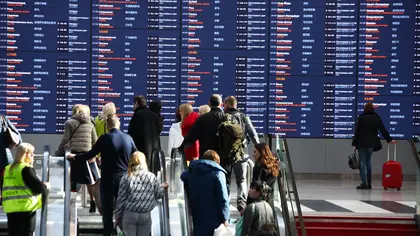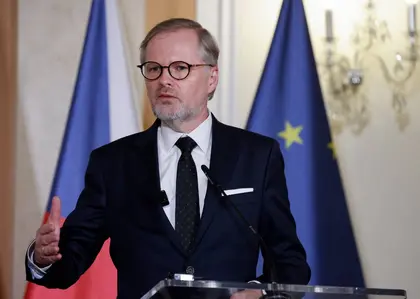In the first 6 months of 2022, 419,000 people emigrated from Russia, RBC news agency reports, citing data from the Federal State Statistics Service (Rosstat). This is twice as much as in the same period last year.
Among those who left Russia during this period, 368,000 went to CIS countries, and 294,000 returned. A little more than 50,000 people left for non-CIS countries, and 27,000 returned. That’s a net loss of 22,000 people, compared to a net growth of 2,500 people in the first half of 2022.
JOIN US ON TELEGRAM
Follow our coverage of the war on the @Kyivpost_official.
After February 24, when Russia launched a full-scale war in Ukraine, many Russians decided to leave the country. For some, this is a temporary solution. Others realize that they may never return to the country. In general, Russian emigrants can be divided into several groups.
The first is big businessmen and apolitical stars who would like to wait out the turbulent times abroad. There is every reason to believe that many of them will return, since their source of income is in Russia, where either their assets or fans are.
The second group is “children’s” emigration. Parents take their children away in order to enroll them in Western schools, without political indoctrination and patriotic education — and without the prospect of serving in the Russian army.
The third group is high-tech emigration. Workers at IT companies can quickly find employment in other countries. Such a “brain drain” seriously worries the Russian authorities. This is why they have exempted IT employees from military service, and provided tax benefits to the companies in which they work. Whether this will be enough, considering that IT specialists need not only economic relief, but also a free environment with the ability to travel around the world is a big question.

Putin Hails Achievements in New Year’s Speech Marking Quarter Century in Power
The fourth and main group is political emigration: journalists, politicians and cultural figures. Some of them used to work in structures declared to be “foreign agents.” Others used to work for media, which were closed after Russian’s full-scale invasion. Still others participated in opposition protests.
Their return in the foreseeable future looks unlikely. Many people understand that as soon as they set foot on their native land, they can instantly find themselves behind bars on charges of “discrediting the Russian army.” After all, in today’s Russia, a person can be deprived of freedom even for an anti-war position or a “politically incorrect statement” on social networks.
There is now the specter of a new Iron Curtain dropping. In the USSR, it was believed that in order to maintain stability, it was necessary to keep the border closed — so that labor resources remained inside the country. At the same time, allowing emigration can be used to mitigate social contradictions. After all, citizens who disagree with the regime can be the instigators of social unrest or even revolutions.
While the prospect of a new Iron Curtain may run counter to logic and common sense, one must not underestimate the role emotions play in domestic political reasoning. As the Western world rapidly shuts Russia out, Russia, in turn, will also be closing in on itself. It remains to be seen to what extent.
You can also highlight the text and press Ctrl + Enter










